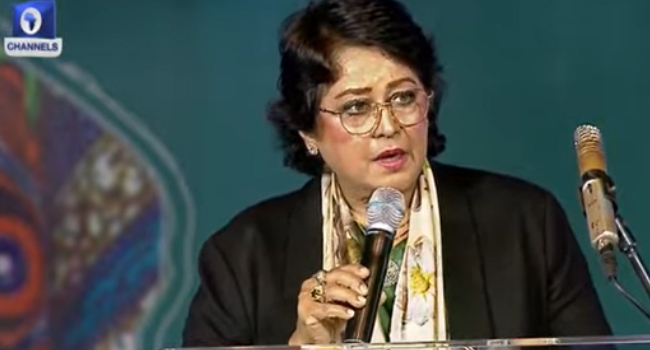The first female president of Mauritius Republic, Ameenah Gurib-Fakim, has stressed the need for President Bola Ahmed Tinubu of Nigeria and other African countries to prioritise education which she described as key to transforming the continent
Ameenah Gurib-Fakim was speaking on Thursday in Lagos State, as Nigeria marks its Democracy Day anniversary and 26 years of unbroken democratic rule on June 12, 2025
According to her, although the challenges of education in Africa abound, the continent should harness its advantages to shore up educational quality.
“My dear brothers and sisters in Nigeria, happy Democracy Day from Mauritius to Nigeria.
“After listening to our convener this morning, I am also of the opinion that education remains the biggest transformation that this continent needs. I am very pleased to speak on how sound education can transform our continent.
As you are all aware of our many interdependent factors that come into play regarding this discussion, some may be tied to Africa, and others may be tied to growth on the continent.
“Our continent is home to 17 per cent of the globe’s population, but we produce around 3 per cent of the global GDP. We carry 25 per cent of the global diseases.
“The above may present as our weaknesses, but our strengths are profound.
“We all agree that the university today offers youths the knowledge they need to enter the workforce.
“In a society like ours with a young population and expanding business classes, the demand for access to higher education will only continue to grow,” she said.
She argued that the university system has the onerous task of churning out graduates whose courses of study are relevant to the continent’s needs.
“Universities will have a balancing act to do, on how to negotiate the balancing tension between increased access to sustained quality assurance and relevance of the courses to society’s soul, that will make the graduates employable.
“The question of what constitutes the relevance in a university education will be answered differently in different locations,” she said.
She argued that a university should not just be training for the jobs that exist today, but for the challenges that will spring up in the future.
“We can not possibly imagine today the problems that an engineer or technician will encounter 20 or 30 years from now. But the education we offer should provide an engineer with the tools that they need to tackle the problems that they are yet to face. We should also teach them how to be flexible enough to re-educate themselves as new opportunities arise,” she said.










No comments:
Post a Comment